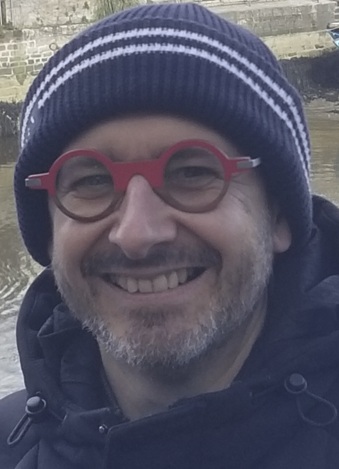Michaël Le Galli
Bio
Michael Le Galli is a comic book writer, passionate about history, graphic narration and major contemporary issues. From his childhood, he devoured Tintin, Blueberry and Hugo Pratt, before discovering Fluide Glacial and immersing himself in the world of the ninth art. As a teenager, he co-directed a comic library of more than 5,000 books, thus forging his visual and narrative culture.
After studying history and ethnology, he oriented his research towards comic books, then left the university world to devote himself fully to writing. He collaborates with numerous cartoonists and publishes striking works such as The Circles of Akamoth, Marie's Demons, or Watch, a series committed to child soldiers, biopiracy and global pollution.
A prolific author, his stories deal with topics such as madness (Insane), immigration (Paroles Sans Papiers), the history of the Roma (Batchalo), the world wars (Operation Overlord) or even epic fantasy (Naragam).
In addition to his publishing projects, he works as a bookseller, regularly hosts conferences and training courses, and directs the “J'ai” collection at Vents d'Ouest.
Combining documentary rigor and narrative imagination, Michael Le Galli builds a body of work that is committed, accessible, and always in dialogue with the contemporary world.
Residency project
At the Rocabella philosophy residency, Michael Le Galli will use his expertise as a screenwriter to support residents in telling their philosophical ideas, helping them to anchor them in reality and fiction.
With a committed body of work combining fiction and documentary, Michael addresses themes as varied as madness, child soldiers, biopiracy, sectarian excesses, the Roma Holocaust, immigration or even the food of tomorrow, with the desire to always raise awareness of the realities of the world. His narrative approach offers a valuable model for philosophers eager to convey complex ideas in accessible, powerful, and embodied forms.
It will guide participants in the development of short scenarios, illustrated stories or narrative structures, in order to transform the search for meaning into powerful stories, nourished by history, contemporary issues and the imaginary. Far from “popularizing” in the impoverished sense of the term, he will show how to tell perhaps another way of philosophizing.
Follow



